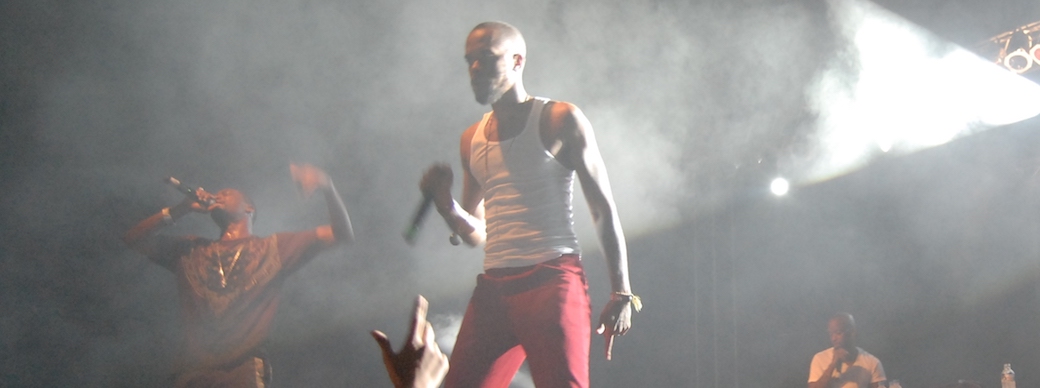Conclusion: What Does This Mean for Soundwriting?
Thanks for coming on this pedagogical journey with us. Before you cruise on to your own pedagogical adventures, we want to offer you a list of commitments and questions that our own project has led us to both consider and adopt. We contend that these commitments and questions ought to anchor any endeavor to create a relevant writing classroom, but that they are especially pressing as our field pushes us to adopt "the next technological hotness" of the day such as soundwriting (Banks, 2015, p. 275).
- How is your pedagogy positioned in relation to the white noise of white supremacy? As we argue in our introduction, white racism acts as an ever-present dampening force of white noise—obscuring the sounds of resistance that constantly bubble up from the grassroots. What sounds are you fostering with your soundwriting pedagogy? Whose sounds are you amplifying, and why?
- How does your soundwriting pedagogy trace the intellectual genealogy of the sounds you're working with? We stand against thin pedagogical appropriations of the remix that encourage students to divorce sounds from the social and movement conditions that they are born from. When you work with hip-hop, for instance, how do you help students to understand the genealogies of the genre and the specific material conditions, political commitments, and relationships to capitalist production of the songs you focus on? We ain't asking y'all to only work with The Coup or Dead Prez or Poor Righteous Teachers, but we do ask y'all to contend with the complicated politics of production and reception that attend that latest Lil Uzi Vert or Cardi B joint. When you harvest sounds, make sure you bring their roots so that their replanting encourages good fruits—and not simply the bitter harvest of ongoing appropriation and misrepresentation that has long plagued white folks' work with Black and Brown and Red artistic production. We see this as a cultural rhetorical approach to soundwriting, and Michael's and Yanira's leadership in this chapter demands that analysis of hip-hop root students not in the ancient Greek cultural rhetorical appeals but instead in Maulana Karenga's (2003) precepts of African and African-American rhetorical practice or in the language of hip-hop feminism. For more guidance on how to help students be ethical "transformers" with their remix, and not simply misinformed or malicious "biters," see Todd Craig's phenomenal essay "'Jackin' for Beats': DJing for Citation Critique" (2013) in Radical Teacher.
- How is your pedagogy bringing wreck (or not and why not)? Gwendolyn Pough's (2015) work on hip-hop feminism reminds us that women have long been bringing wreck to masculinist discourses in hip-hop. She urged us as teachers to help students see how hip-hop can bring wreck—that is, the disruption of the dominant sonic discourse so as to produce transformative "future moments" through our work with sound (p. 76). Following Pough, we ask you to consider how your work with sound in pedagogy sets students up to recognize wreck, or not. Are you asking students to bring wreck? How so? If not, why?
- What impact does your own teacherly embodiment in your teaching context have on the pedagogical trajectory in the classroom? Our conversations revealed deep tensions and differing limits to the conversations in our different predominantly white institution (PWI) classrooms based on our own teacher bodies. Whereas Michael's and Yanira's work with these sounds has often led to students immediately writing them off as too political, Tim's whitely-seeming embodiment often leads students to treat the conversation as a merely academic exercise. What limits or possibilities are opened up by your own teacherly body? If you're read as white by your students, what political work are you willing to do with that privilege? As Michael asks Tim, how will you "Go get yo' boy(s)" in the classroom and beyond? If you're read as a person of the global majority, what limits will you place on the work to protect your head and your heart amidst the white noise of a PWI?
- To what extent are you about the "next technological hotness" and to what extent are you about "freedom school"? Our conversations deepened our commitments to a pedagogy that is about helping more of us get more free. We found that doing freedom school with soundwriting requires lots of footwork to assure students of the transformative access to both theory and technology that Adam Banks (2006) called for. If the soundwriting work isn't rooted in that larger goal, what goals and outcomes does it actually serve in your classrooms? And why are you doing it?
As we all have revised this chapter, we all continue to use hip-hop and sound in our writing classrooms. But soundwriting remains simply one of the means by which we work on freedom school with our students. We urge our fellow soundniks to root our field's soundwriting pedagogy not simply in an uncritical embrace of the hotness promised by podcasts and field recording but in the long lean toward justice called for in this particular iteration of late capitalism's white noise.
